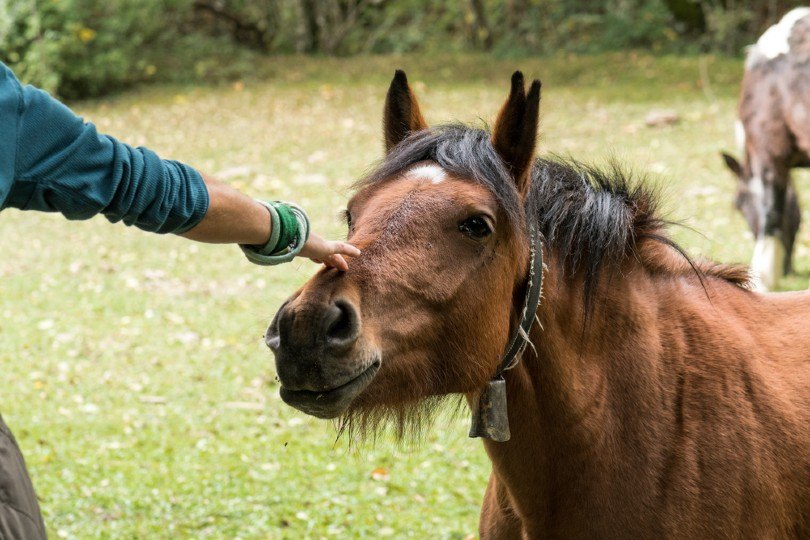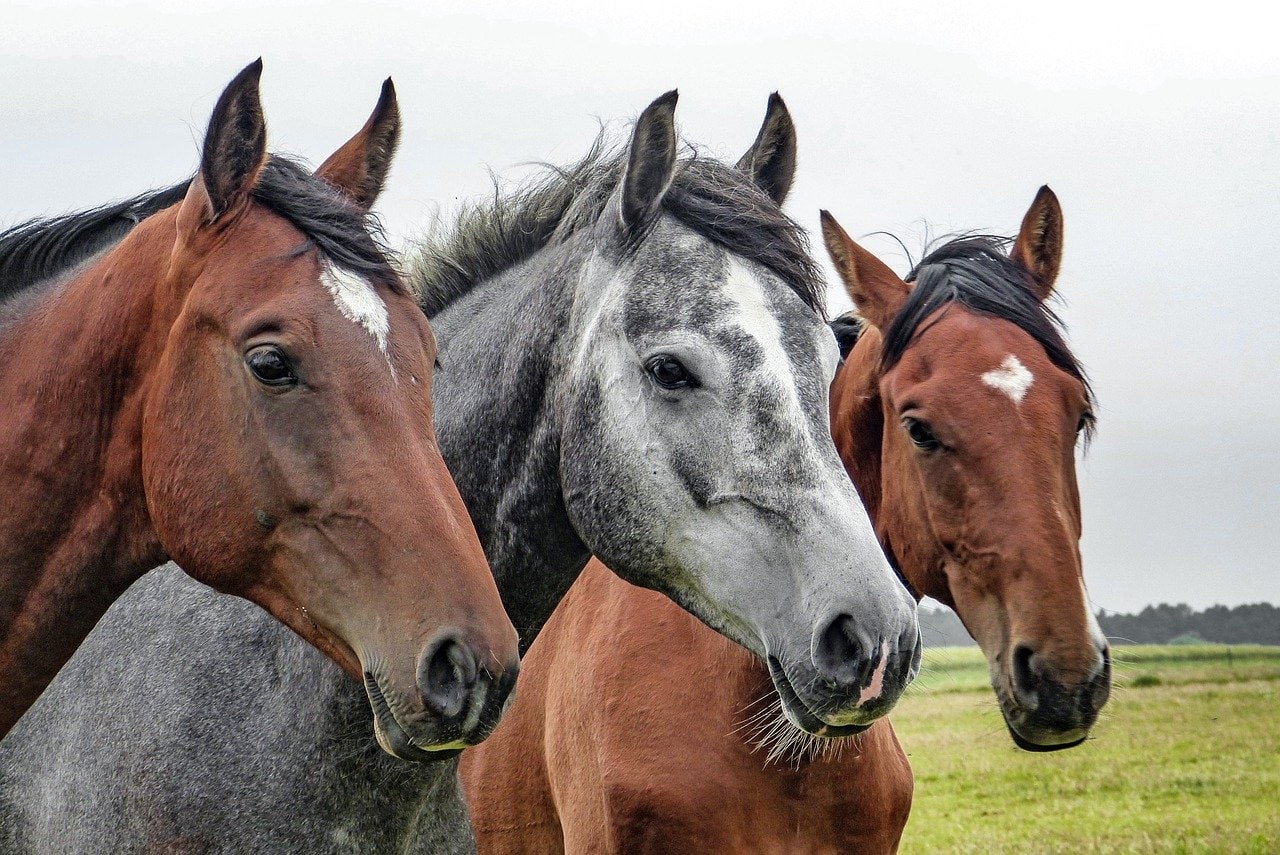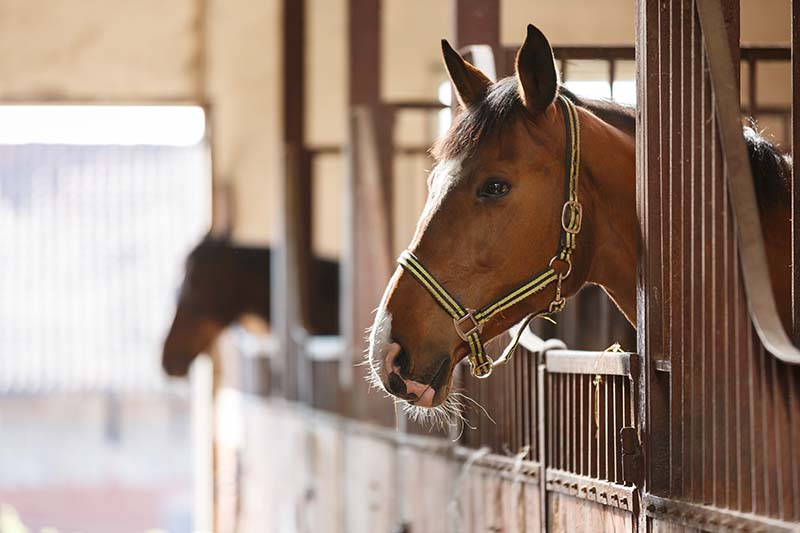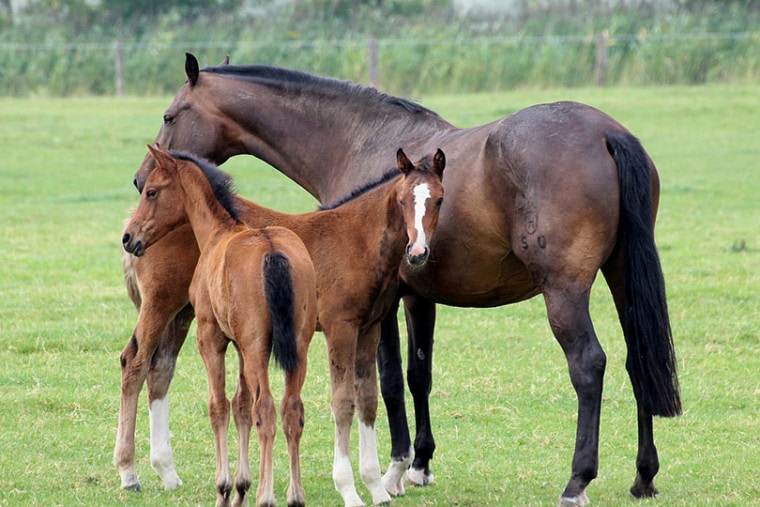
On average, a female horse, or mare, can have between 16-20 foals in her lifetime. However, this number is a rough estimate because so many factors can affect the number of foals a mare can have. Such factors include the breed, health, and fertility of the mare.
If you’re interested in horse breeding, it’s important to be well-informed about horses’ breeding and reproductive cycles and to increase the chance of successful breeding and having more foals in your band of horses.
At What Age Can a Mare Get Pregnant?
Mares typically reach puberty at about 12-15 months old. However, they can go through puberty as young as 9 months old or later at around 18 months old.
Horses have a specific breeding season that typically begins in the spring. Their breeding instincts actually get triggered by the lengthening of the daytime, so horses also have the name, “long-day breeders.” Consequently, their breeding season ends as the days grow shorter in the fall.
A mare can ovulate several times within one breeding season until she gets pregnant. The estrus cycle of a mare can last about 21 days. Of these 21 days, the mare is in heat, or estrus, for 3-7 days and ovulates 1-2 days before the end of estrus. She must mate with a stallion within this window ovulation for successful breeding.
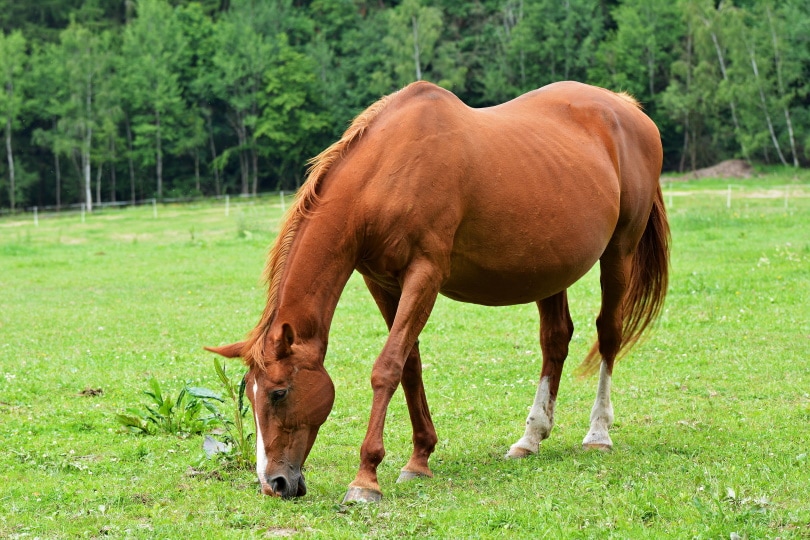
The 5 Signs that a Mare is Ready for Breeding
Since the window of ovulation is extremely brief, it’s important to look for signs that your mare is ready to mate. Mares will start displaying teasing behavior when she’s in heat.
You’ll typically know if the mare is no longer in estrus when she doesn’t show signs of interest in a stallion. Since some mares can show aggression towards stallions, it’s important to create a safe environment for them to interact. Many breeders will use stalls or pens specifically designed for breeding to ensure safety for both horses and handlers.
How Can You Tell If a Horse is Pregnant?
A mare may show signs of pregnancy, but the surest way to know is to perform an ultrasound. Your veterinarian can also do a blood test.
One sign that your mare is pregnant is if she’s resistant to a stallion. If you take your mare to a stallion a couple of weeks after she’s mated, she’ll either show interest or resistance. If she’s not interested in the stallion, there’s a chance that she’s pregnant.
A mare will have a bloated belly and the appearance of her udders will change. However, these are signs that appear in the latter quarter of the gestation period.
- Related read: How to Tell If a Horse is Pregnant: 4 Signs to Look For
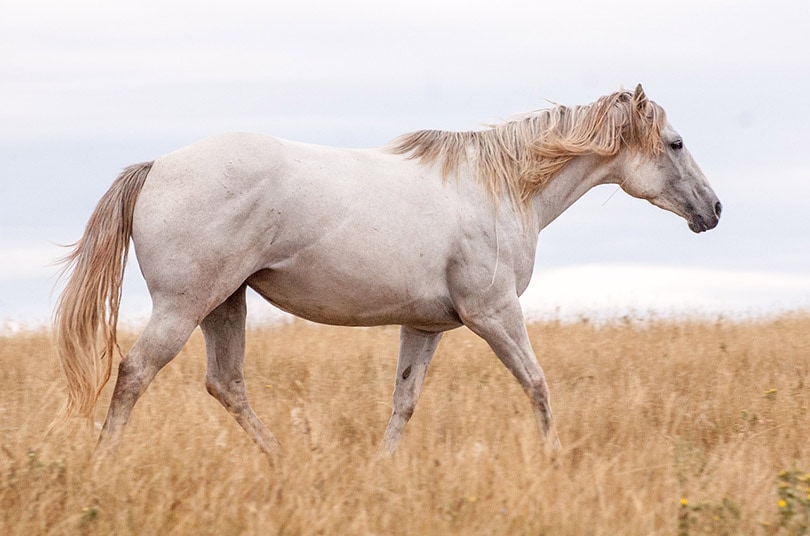
How Long Do Mares Carry Foals?
Mares can be pregnant for just about a year. The gestation period can last between 320-380 days, and it depends on the horse breed. Smaller horse breeds typically have longer gestation periods.
When a mare is pregnant, it’s important to closely monitor her behavior and physical appearance to make sure that she’s staying healthy. The first 30 days of gestation are extremely important, so make sure that the mare doesn’t engage in any strenuous exercise or receive any vaccinations.
After the initial 30-day period is over, make sure that your mare is getting enough exercise. Some experts say that pregnant mares can engage in sporting events until 8 months into their pregnancy. You don’t have to push your mare to participate in competitions, but they still need adequate exercise to stay healthy.
The amount of food you feed your pregnant mare doesn’t change drastically for the first 7-8 months. They’ll need more food and energy during the last few months of gestation as the fetus grows.
Make sure to also keep up with your mare’s vaccination schedule. They’ll need certain vaccinations at specific times to ensure their safety and the foal’s safety. Pregnant mares are also more susceptible to worms, so make sure to be extra vigilant with their worming regimen.
How Old Are Mares When They Stop Having Babies?
Domesticated horses typically live between 20-30 years. Mares typically exit their prime reproductive age at around 15-16 years old. Most mares that have a history of successful pregnancies can still mate and become pregnant past this age. However, the chances of success become slimmer.
If you’re unsure of breeding your mare, you can always have your veterinarian perform a breeding soundness exam. This exam helps determine your mare’s reproductive health and ovarian activity. It’s exceptionally useful if you’ve rescued or adopted a mare that doesn’t have any reproductive health records.

How Many Foals Can a Mare Have at Once?
Mares typically give birth to one foal per pregnancy. On very rare occasions, she can have twins. However, the odds of a successful birth of twins are very slim because there’s very little space for two foals to grow in the uterus.
Pregnancies with twin foals often end with a late-term abortion, or the mares often give birth prematurely. Therefore, discovering twins is often unfavorable and not celebrated because the chances of a successful birth are extremely low.
Some mares have had even rarer cases of giving birth to triplets. While twin foals have a 1 in 10,000 chance at a successful birth, triplets have a 1 in 300,000 chance at a successful birth.
Conclusion
A healthy mare can have between 16-20 foals, which is quite the accomplishment considering how challenging it can be for a mare to become pregnant. Breeding horses can be a meticulous and tricky process because the window of opportunity for a mare to become pregnant is very narrow.
If you’re looking to breed your mare, just remember that it’s about a year-long commitment to caring for a pregnant mare. It can be quite a time commitment, but a successful birth is also an extremely rewarding experience.
Featured Image Credit: 127071, Pixabay



